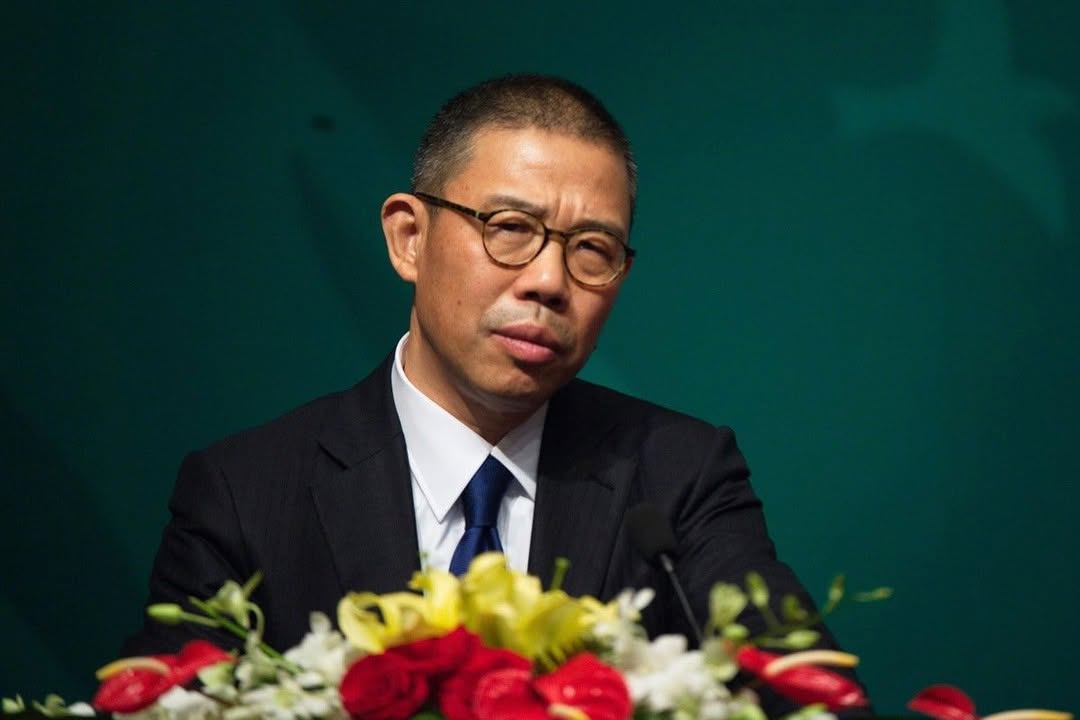China’s Richest Man Criticizes Tech Giants and Government Inaction in Rare Public Rebuke
In a country where public criticism of government policies and major corporations by business leaders is almost unheard of, Zhong Shanshan, China’s wealthiest individual and the founder of beverage giant Nongfu Spring, has broken the mold. Zhong has issued a stinging critique of e-commerce platforms for triggering damaging price wars and accused the Chinese government of failing to address the economic fallout. His remarks, which were partially censored by state media, spotlight the mounting challenges in China’s corporate and economic environment.
The Rise of Cut-Throat Pricing
Zhong’s sharpest criticism was directed at Pinduoduo, the e-commerce platform owned by PDD Holdings, which has disrupted the market with its aggressive discounting strategies. Known for its group-buying model, Pinduoduo has capitalized on shifting consumer behavior amid China’s slowing economy, attracting millions of users seeking low-cost alternatives.
However, Zhong sees this as a double-edged sword. Speaking to reporters during a visit to eastern China, Zhong remarked, “Internet platforms have brought down (our) pricing system. In particular, Pinduoduo’s pricing system has done great harm to China’s brands and its industries.”
Zhong warned that this focus on relentless price competition undermines quality, innovation, and long-term profitability. He described the phenomenon as “bad money driving out good money” and accused e-commerce platforms of setting a destructive industry standard.
Economic Implications of Discount Culture
China’s ongoing economic slowdown, marked by sluggish GDP growth and faltering consumer confidence, has created an environment where price wars thrive. As households face rising unemployment and reduced disposable incomes, even premium brands have been forced to offer discounts to remain competitive.
This discount-driven culture has had a ripple effect, with small and medium-sized businesses suffering the most. By slashing prices to unsustainable levels, platforms like Pinduoduo have eroded profit margins across industries, weakened brand equity, and created an unstable competitive landscape.
Related: Zhang Yiming's Business Strategies: How He Built ByteDance Into a Global Powerhouse
Zhong Takes Aim at the Government
Perhaps the most surprising element of Zhong’s remarks was his direct criticism of the Chinese government, a rare move in a country where such dissent can have serious consequences. Zhong accused regulators of being negligent in allowing price wars to spiral out of control, arguing that government intervention is long overdue.
“The government has not intervened in this industry orientation, and I think the government has been negligent in its duty,” Zhong said, according to transcripts published by Sina Technology.
This critique raises questions about Beijing’s role in managing market dynamics and whether policymakers have done enough to create a fair playing field for businesses.
Lessons from Jack Ma’s Experience
Zhong’s bold statements evoke comparisons with Alibaba co-founder Jack Ma’s controversial 2020 speech, where Ma criticized China’s financial regulators and traditional banking system. The fallout from Ma’s remarks was swift and severe. The planned $37 billion IPO of Ant Group, Alibaba’s fintech affiliate, was abruptly shelved, and Ma largely disappeared from the public eye for months.
This incident marked the beginning of a regulatory crackdown that reshaped China’s tech sector. Giants like Alibaba, Tencent, and Pinduoduo faced increased scrutiny, fines, and antitrust investigations, creating a more restrictive environment for private businesses.
Zhong’s decision to speak out, despite these precedents, underscores the growing frustration among China’s business elite.
The Rise and Impact of Pinduoduo
Pinduoduo, founded in 2015 by Colin Huang, has emerged as a disruptive force in China’s e-commerce landscape. By offering steep discounts and leveraging social commerce, the platform has attracted over 900 million users.
While its growth has been meteoric, Pinduoduo’s business model has faced criticism for being overly reliant on discounts, which some argue are unsustainable. Additionally, the platform has been accused of fostering poor labor practices and contributing to a race to the bottom in pricing.
Zhong’s critique highlights the broader challenge of balancing rapid growth with sustainable business practices, a dilemma faced by many tech-driven companies in China.
Challenges for Zhong Shanshan and Nongfu Spring
Zhong’s outspoken remarks come at the end of a tumultuous year for the billionaire. Earlier in 2023, Zhong faced a nationalist campaign accusing him of lacking patriotism. Critics targeted Nongfu Spring, alleging it prioritized foreign markets over domestic needs, a charge that led to a significant drop in the company’s stock price.
This backlash erased tens of billions of dollars from Nongfu’s market capitalization and temporarily cost Zhong his position as China’s richest person. However, he has since regained the top spot, with a net worth of $52.2 billion, according to the Bloomberg Billionaires Index.
Related: CEO Today Top 50 - Zhang Yiming
Related: The Global Chip War: U.S. Restrictions on China’s Semiconductor Industry Intensify
China’s Economic Crossroads
Zhong’s comments come at a critical juncture for China’s economy. The country is grappling with a host of challenges, including slowing GDP growth, a shrinking workforce, and declining consumer confidence.
The government’s regulatory approach, while aimed at curbing monopolistic practices, has created uncertainty for businesses. As a result, industry leaders like Zhong are calling for clearer policies that support sustainable growth while protecting local industries.
A New Era of Corporate Advocacy?
Zhong’s remarks may signal the start of a new era in China, where business leaders feel compelled to advocate for systemic change publicly. While the risks of such criticism are high, the stakes for the economy are even higher.
For now, Zhong’s comments have sparked a broader conversation about the future of Chinese commerce, the role of government in regulating markets, and the responsibilities of major corporations in fostering healthy competition.









